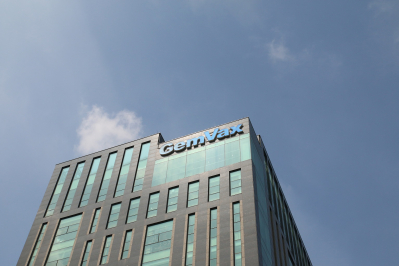기업
Gemvax "Completed Alzheimer’s Disease Clinical Phase 2 Patient Registration"
by Jongwon Jang
Study of 96 patients with moderate to severe dementia will be done by the end of this year.. “Planning to submit the U.S. Clinical Trial Application”

Gemvax&Kael has completed the registration of patients with Alzheimer’s disease for the phase 2 clinical trial. As such, we are expecting to see the clinical results as early as at the end of this year.
On 13th, Gemvax&Kael has announced that they had completed the registration of GV1001 patients with Alzheimer’s disease for the phase 2 clinical trial.
Since August 2017, Gemvax has been performing the phase 2 clinical trials to evaluate the efficacy and safety of ‘GV1001’ for 96 subjects with moderate (intermediate) or severe (terminal) stage of Alzheimer’s disease in 12 institutions including Hanyang University Guri Hospital.
The efficacy and safety of this phase 2 trial are evaluated by administering subcutaneously GV 1001 0.56mg or 1.12mg to moderate to severe Alzheimer patients who received stable doses of Donepezil, a cholinergic nervous system regulator, for more than 3 months. The company said that it is the only clinical study that targets moderate to severe Alzheimer’s disease patients among the 15 clinical trials currently ongoing in Korea.
GV1001 is a peptide consisting of 16 amino acids derived from human telomerase. Telomerase maintains the lengths of telomeres that exist at the chromosomal end. It is known to have cytoprotective effects such as anti-inflammation and antioxidation in addition to immune, anti-cancer effects.
Prior to this clinical trial, Gemvax has found, through the basic researches, that GV1001 has a variety of mechanisms for the treatment of Alzheimer’s disease, including inhibition of beta amyloid deposits and condensation of tau protein in neurons.
Considering that phase 2 clinical trials for Alzheimer’s disease are scheduled for six months of administration after the patient is registered, clinical results are expected to be available as early as the end of the year.
The CEO Song Hyung Gon said, “Since the moderate to severe Alzheimer’s disease patients should be accompanied by their caregivers, it was difficult to process the procedures including recruiting patients for clinical trials. With these hardships having overcome, we hope this trial to yield meaningful results and confirm the potential of GV1001 as a treatment of Alzheimer’s disease”.
CEO Song also said, “We have been working on the U.S. clinical trial approval (FDA-IND) for Alzheimer’s disease and is currently in the final stages of submitting documents” at the same time as the clinical trials are in progress in Korea. We will do our best to successfully enter the global market with our partners, Vetter, the global pharma manufacturer from Germany, and Parexel, the Global Clinical Trials Agency (CRO).
Alzheimer’s disease is a neurotoxicity caused by the condensation and deposition of specific proteins, beta amyloid and Tau protein, which cause damage of mutual communication between neuronal and glial cells, inflammation reaction, and brain cell death. It is a neurodegenerative disorder that progresses to a situation where the function of the cell is impaired and decreased and the cognitive function is lowered and eventually causes the daily life impossible.
According to data from the Globaldata, the global drug market for Alzheimer’s disease including world’s seven major countries (U.S., France, Germany, Italy, Spain, UK, and Japan) amounts to about $3 billion dollars (3.3 trillion won) in 2016. It is expected to form a market of about $14.6 billion dollars (16 trillion won) in 2026.


















